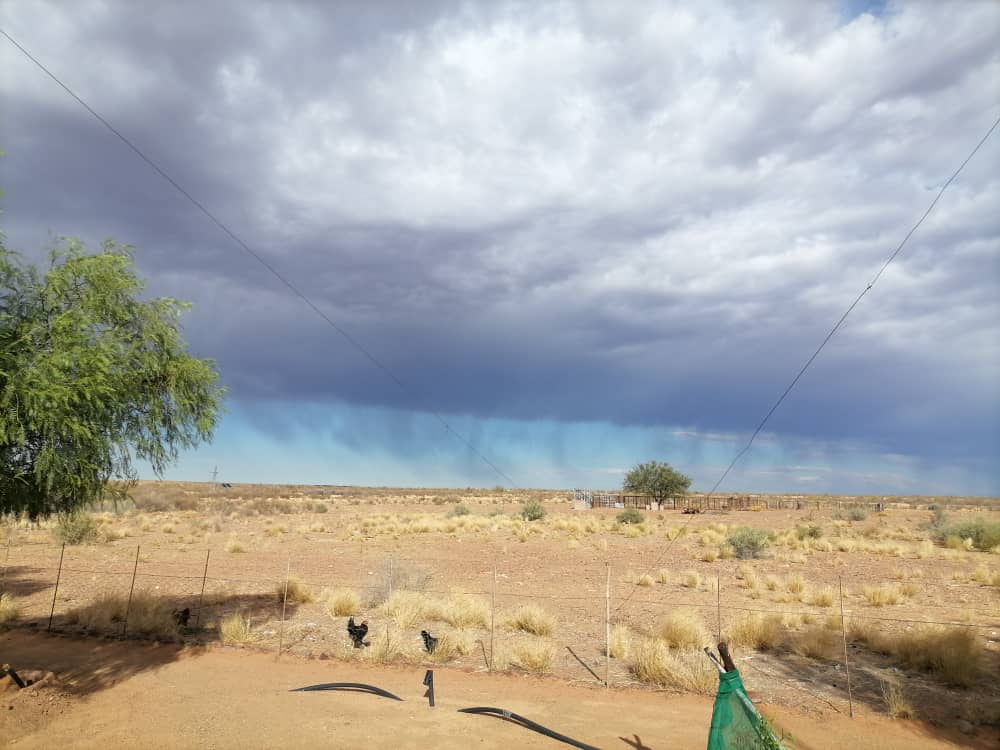Namibia: Rainfall remains minimal, rangelands dry
Cause for concern
Below-normal rainfall over large parts of Namibia has been attributed to El Niño conditions over the central and eastern Pacific Ocean.
While the rainfall performance over Namibia has yet again been minimal over the bulk of the country, with below-normal rainfall recorded during February, rangelands in Namibia were also drier than normal last month.According to the Climate Bulletin for February issued by the Namibia Meteorological Services, the below-normal rainfall experienced was mostly a result of the present El Niño conditions over the central and eastern Pacific Ocean.
Most rainfall was concentrated over the north-western and central regions, but the amounts were still below normal for the time of the season compared to the long-term averages, the bulletin stated.
“Comparing the rainfall as deviations from the normal, the rainfall performance was 75% below normal for most of the country. However, pockets of normal rainfall were observed over the Khomas, Odjozondjupa, //Karas, and Kunene regions.”
The Kunene Region is the only region that received above-normal rainfall.
‘Cause for concern’
A summary of seasonal rainfall performance from October to February portrays similar conditions.
“Drier-than-normal rainfall has been observed over the bulk of the country, which is now a cause for concern as the end of the season is drawing near.”
The report noted that El Niño conditions continue to be observed over the eastern and central tropical Pacific but have started weakening.
However, it will continue to influence the global climate in the coming months, up until May.
“The predictions largely point to a 60% chance of El Niño persisting during March to May and an 80% chance of neutral conditions during April to June," the report states.
The outlook for March to May indicates below-normal rainfall conditions over the bulk of the country, except over the Zambezi Region, which can largely expect normal conditions.
The //Karas, Hardap, western Erongo and extreme western Kunene regions are expected to receive rainfall below 40 mm for the period, while the remainder of the interior is expected to receive rainfall above 60 mm.
The highest amounts of rainfall, approximately 120 mm, are anticipated over the Zambezi Region.
Poor plant productivity
Meanwhile, ecologist Cornelis van der Waal, in the 'State of the Namibian Rangeland' report for February, said the drier-than-normal areas include the Erongo, Khomas, Omaheke, Hardap and //Karas regions, as well as the southern parts of the Oshana, Oshikoto, Otjozondjupa and Kunene (also western parts) regions.
He said the Zambezi Region ranges from normal to below normal. Above-average conditions are currently experienced in the north-eastern parts of the Kunene, the northern parts of the Omusati, Oshana, and Oshikoto regions, as well as the western parts of Kavango West.
Van der Waal said plant productivity in large parts of Namibia remains poor. Exceptions include the far north and north-west, where plant productivity is above average. In the dry areas, drought preparedness is strongly advised.
He said livestock production in Namibia is almost entirely dependent on the productivity of its rangelands, which may plummet to near zero during severe droughts.
“Rainfall variability results in severe management challenges for livestock farmers who need to balance animal forage requirements with the forage produced, as well as preventing land degradation.”



